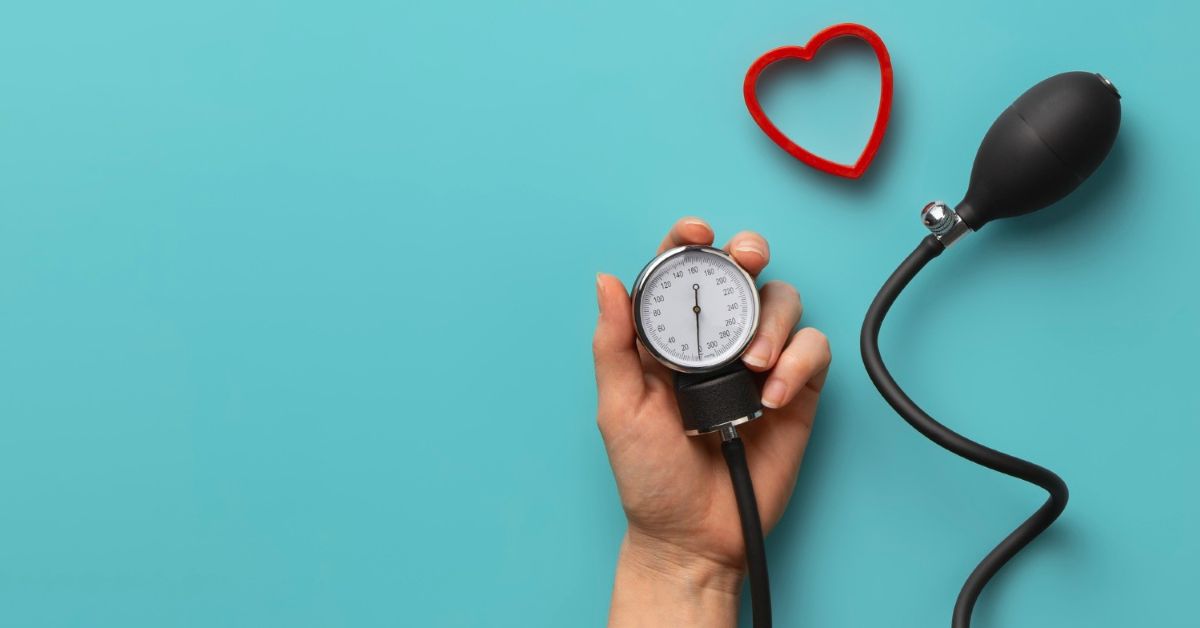
In recent years, hypertension (commonly known as high blood pressure) has emerged as a global health concern. The World Health Organization (WHO) reports that more than 1.28 billion adults globally are affected by hypertension, with nearly 50% of them unaware of their condition. If not controlled, high blood pressure can considerably elevate the likelihood of heart disease, stroke, kidney damage, and various other chronic ailments.
The positive aspect is that, in numerous instances, hypertension can either be avoided or controlled by means of natural lifestyle modifications, without the need to depend exclusively on medication. Individuals can safeguard their cardiovascular health, lower their risk factors, and sustain healthy blood pressure levels by making consistent choices that prioritize health.
This blog examines the best natural methods for preventing hypertension and encouraging long-term health.
Prior to exploring prevention, it is crucial to comprehend the nature of hypertension. Blood pressure gauges the strength of blood as it pushes against the walls of arteries during heartbeats. It is documented as a pair of figures:
Blood pressure readings of about 120/80 mmHg are considered normal. Blood pressure readings of 130/80 mmHg or above that occur consistently are typically indicative of hypertension.
Preventing hypertension doesn’t always necessitate medication; many effective solutions lie in everyday lifestyle choices. Individuals can naturally manage their blood pressure and safeguard their heart health by making small but consistent adjustments to their diet, exercise routine, stress management strategies, and other daily habits. These precautionary actions diminish the likelihood of hypertension while also enhancing general health and energy.
One of the most significant risk factors for developing hypertension is being overweight or obese. Excessive body fat, especially in the abdominal area, puts additional stress on the heart and blood vessels, resulting in higher blood pressure.
Nutrition is key to preventing hypertension. The DASH diet (Dietary Approaches to Stop Hypertension) is among the most frequently suggested dietary patterns for managing blood pressure.
Essential dietary advice includes:
Consistent physical activity boosts heart strength, enhances blood circulation, and aids in keeping a healthy weight—these are all vital for managing blood pressure.
Being consistent is crucial. Compared to those who lead a sedentary lifestyle, individuals who stay active are much less prone to developing hypertension.
Chronic stress results in the secretion of hormones such as cortisol and adrenaline, which can cause a temporary increase in blood pressure. Chronic stress can lead to long-term hypertension as time goes on.
Healthy methods for dealing with stress comprise:
While moderate alcohol consumption may provide some cardiovascular benefits, excessive drinking can lead to increased blood pressure and heart damage.
Each cigarette you smoke leads to a temporary increase in blood pressure. Over time, tobacco harms the walls of blood vessels, speeds up arterial stiffness, and plays a role in heart disease.
Staying adequately hydrated aids the kidneys in removing surplus sodium and maintains flexibility in blood vessels. Dehydration, on the other hand, can cause the body to conserve sodium, raising blood pressure.
There is a connection between hypertension and poor sleep as well as sleep disorders such as sleep apnea. During sleep, the body repairs itself and regulates hormones that affect blood pressure.
This essential mineral assists in maintaining sodium levels in the body and helps to relax the walls of blood vessels: potassium.
Being aware is also part of prevention. A lot of individuals are unaware of their hypertension until complications occur.
Lifestyle changes form the basis of preventing hypertension, but some natural remedies may offer additional assistance:
Before beginning any supplements, always consult a healthcare professional, particularly if you are taking medication.
Related: Recognizing the Early Signs of a Heart Attack
Hypertension is frequently referred to as the “silent killer” due to its gradual development and lack of clear symptoms until serious complications occur. The positive aspect, however, is that a healthy lifestyle can often lead to natural prevention.
You can greatly lower your risk of developing hypertension by keeping a healthy weight, eating a well-balanced diet, working out consistently, managing stress levels, limiting alcohol intake, avoiding tobacco use, staying hydrated, and getting quality sleep. These strategies not only help to avert high blood pressure but also contribute to general well-being and a long life.
We at L H Hiranandani Hospital are dedicated to empowering you to manage your heart health through preventive care, expert consultations, and state-of-the-art treatment options. Our cardiology expert team offers tailored support for blood pressure management and cardiovascular risk reduction. If you are worried about high blood pressure or want to embrace a healthier way of living, come to us for reliable, all-encompassing treatment.
Indeed, in numerous instances, hypertension can be prevented or controlled by adopting lifestyle changes like keeping a healthy weight, lowering salt consumption, engaging in regular physical activity, and managing stress levels. Nonetheless, certain people who have genetic or medical risk factors might still need medication.
It is advised by specialists to engage in moderate-intensity workouts for a minimum of 150 minutes weekly, including activities like fast walking, biking, or swimming. Daily activities such as gardening or using the stairs can also help with blood pressure management.
Restrict foods that are high in sodium, saturated fats, trans fats, and added sugars, like processed snacks, fried items, fast food, and beverages with added sugar. Concentrate on fresh produce, whole grains, low-fat proteins, and nutritious fats instead.